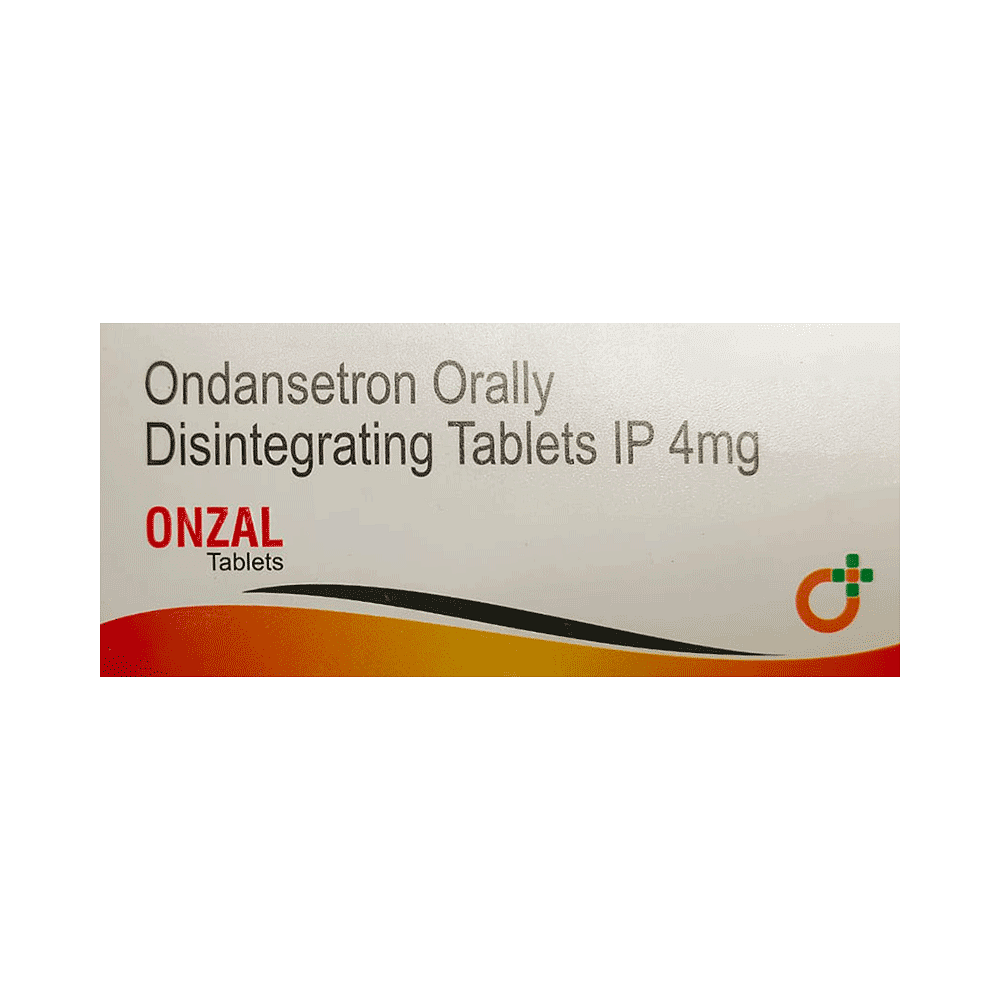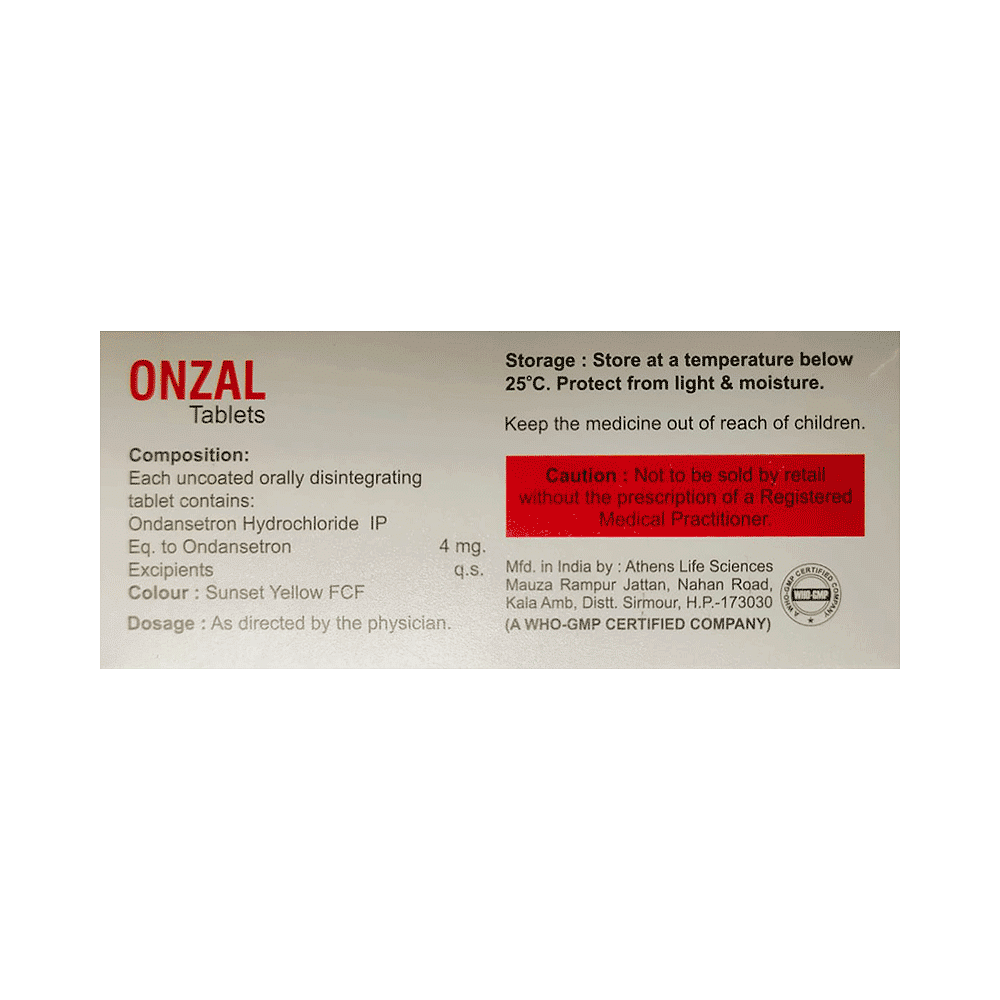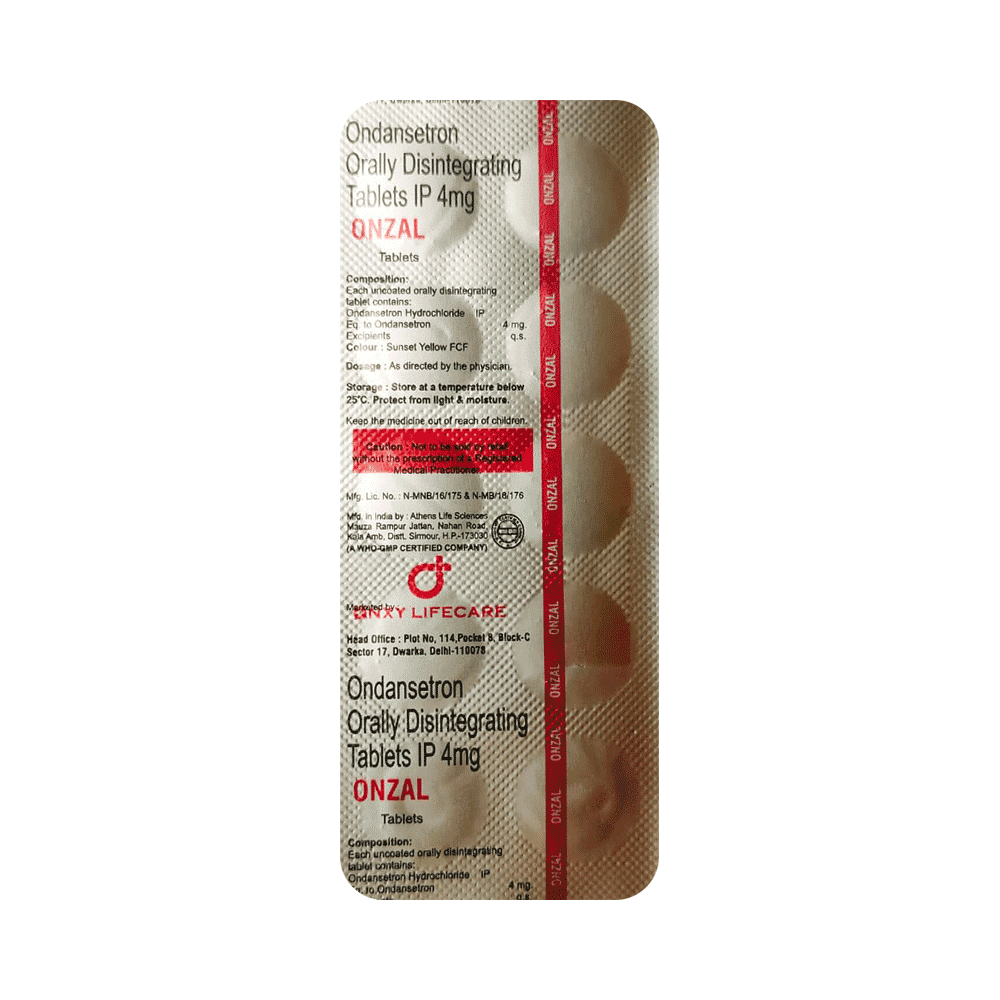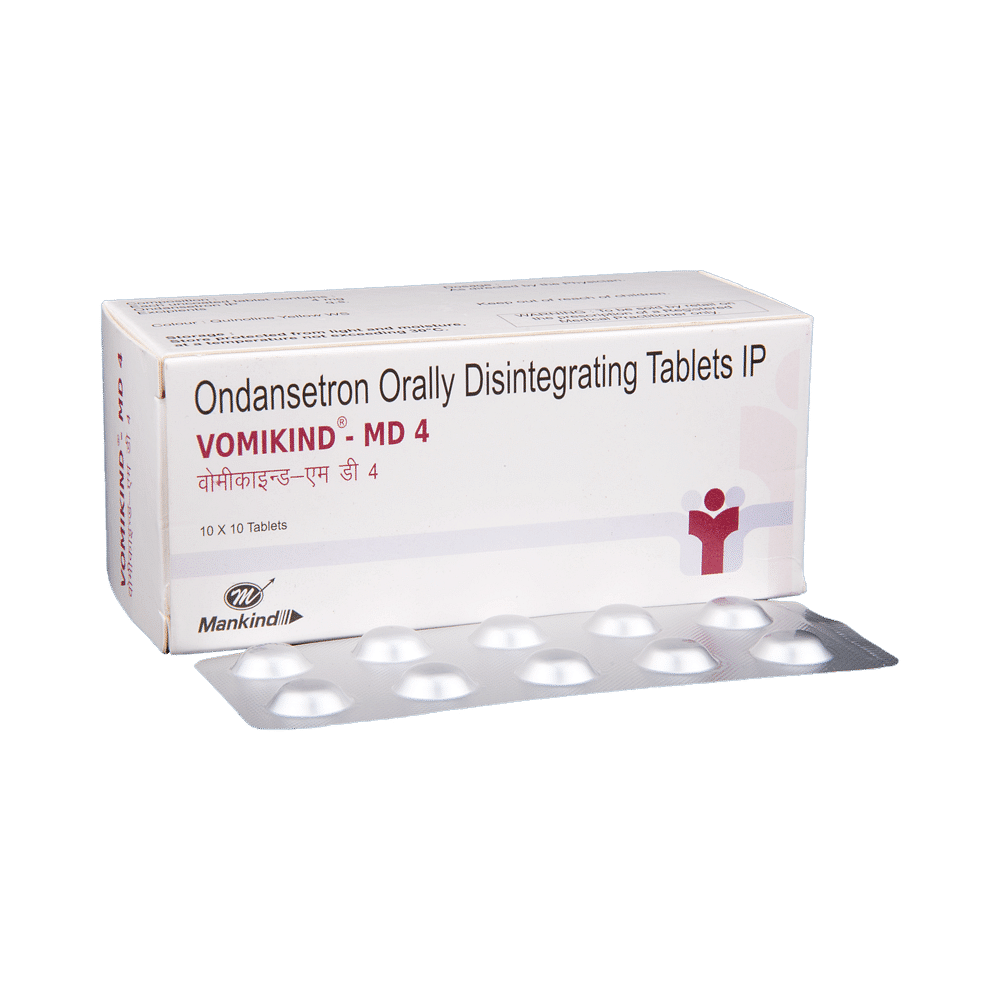


Onzal Orally Disintegrating Tablet
Manufacturer
Onxy Lifecare
Salt Composition
Ondansetron (4mg)
Key Information
Short Description
Onzal Orally Disintegrating Tablet is an antiemetic medicine used to control nausea and vomiting due to certain medical conditions, surgery, cancer drug therapy, or radiotherapy.
Dosage Form
Tablet DT
Introduction
Onzal Orally Disintegrating Tablet may be used alone or with other medications and can be taken with or without food. Your doctor will suggest the appropriate dose depending on what you are taking it for. The first dose is normally taken before the start of surgery, chemotherapy, or radiotherapy. After these treatments, take any further doses as prescribed by your doctor (normally only for a few days at most). Take it regularly at the same time(s) each day to get the most benefit. Be careful not to take too much. This medicine does not relieve other side effects associated with cancer treatments. Also, it has little effect on vomiting caused by motion sickness. The most common side effects of taking this medicine include headache, diarrhea, or constipation and feeling tired. These symptoms should disappear when you stop taking the medicine. However, if these side effects bother you or do not go away, your doctor may be able to suggest ways of preventing or reducing them. Before taking this medicine, tell your doctor if you have heart or liver problems or a blockage in your stomach or intestines. Also, tell your doctor about any other medicines you might be taking, especially medicines to treat epilepsy, heart problems, cancer, and depression. These may affect or be affected by this medicine. If you are pregnant or breastfeeding, ask for advice from your doctor.
Directions for Use
Take this medicine in the dose and duration as advised by your doctor. Dissolve it in a glass of water before taking it. Onzal Orally Disintegrating Tablet may be taken with or without food but it is better to take it at a fixed time.
Safety Information
Side Effects
headache diarrhea constipation feeling tired
Alcohol Warning
Consuming alcohol with Onzal Orally Disintegrating Tablet does not cause any harmful side effects.
Breastfeeding Warning
Onzal Orally Disintegrating Tablet is probably safe to use during breastfeeding. Limited human data suggests that the drug does not represent any significant risk to the baby.
Pregnancy Warning
Onzal Orally Disintegrating Tablet is generally considered safe to use during pregnancy. Animal studies have shown low or no adverse effects to the developing baby; however, there are limited human studies.
Interacting Medicines
Codeine Dextropropoxyphine Nalbuphine Pentazocine
How it works
Onzal Orally Disintegrating Tablet is an antiemetic medication. It works by blocking the action of a chemical messenger (serotonin) in the brain that may cause nausea and vomiting during anti-cancer treatment (chemotherapy) or after surgery.
Quick Tips
You have been prescribed Onzal Orally Disintegrating Tablet for prevention of nausea and vomiting caused after surgery or due to chemotherapy and radiotherapy. If you vomit within one hour of taking a dose, take another dose. Avoid heavy meals and try eating small nourishing snacks throughout the day. Also, sip water regularly to help avoid dehydration.
Related Medicines

Zofer MD 4 Tablet

Vomikind-MD 4 Tablet

Genvom 4mg Tablet DT

Vomit-Off Tablet DT

Vomsea 4mg Tablet DT

Odan 4mg Tablet DT

Ondepic 4mg Tablet DT

Tandy 4mg Tablet DT

Inotron Tablet DT 4mg

Onmak MD Tablet 4mg
Frequently asked questions
How quickly does Onzal Orally Disintegrating Tablet start working?
Onzal Orally Disintegrating Tablet starts working within half an hour to 2 hours after administration. It rapidly dissolves into the bloodstream, allowing for quick absorption and effect.
What are the possible side effects of Onzal Orally Disintegrating Tablet?
The most commonly reported side effects of Onzal Orally Disintegrating Tablet include constipation, diarrhea, fatigue, and headache. However, these side effects are generally mild and subside on their own over time. If any adverse reactions persist or worsen, it is important to consult your healthcare provider.
When should Onzal Orally Disintegrating Tablet be taken?
Onzal Orally Disintegrating Tablet can be taken with a full glass of water, with or without food. It should always be taken exactly as prescribed by your healthcare provider. The first dose is typically taken before the start of surgery, chemotherapy, or radiation therapy.
Is Onzal Orally Disintegrating Tablet a steroid?
No, Onzal Orally Disintegrating Tablet is an antiemetic and not a steroid. It is a selective 5-HT3 receptor antagonist used to prevent and treat nausea and vomiting caused by surgery or cancer chemotherapy.
Does Onzal Orally Disintegrating Tablet work for seasickness?
No, Onzal Orally Disintegrating Tablet is not effective against seasickness. It does not have a significant effect on the nausea often associated with motion sickness.


